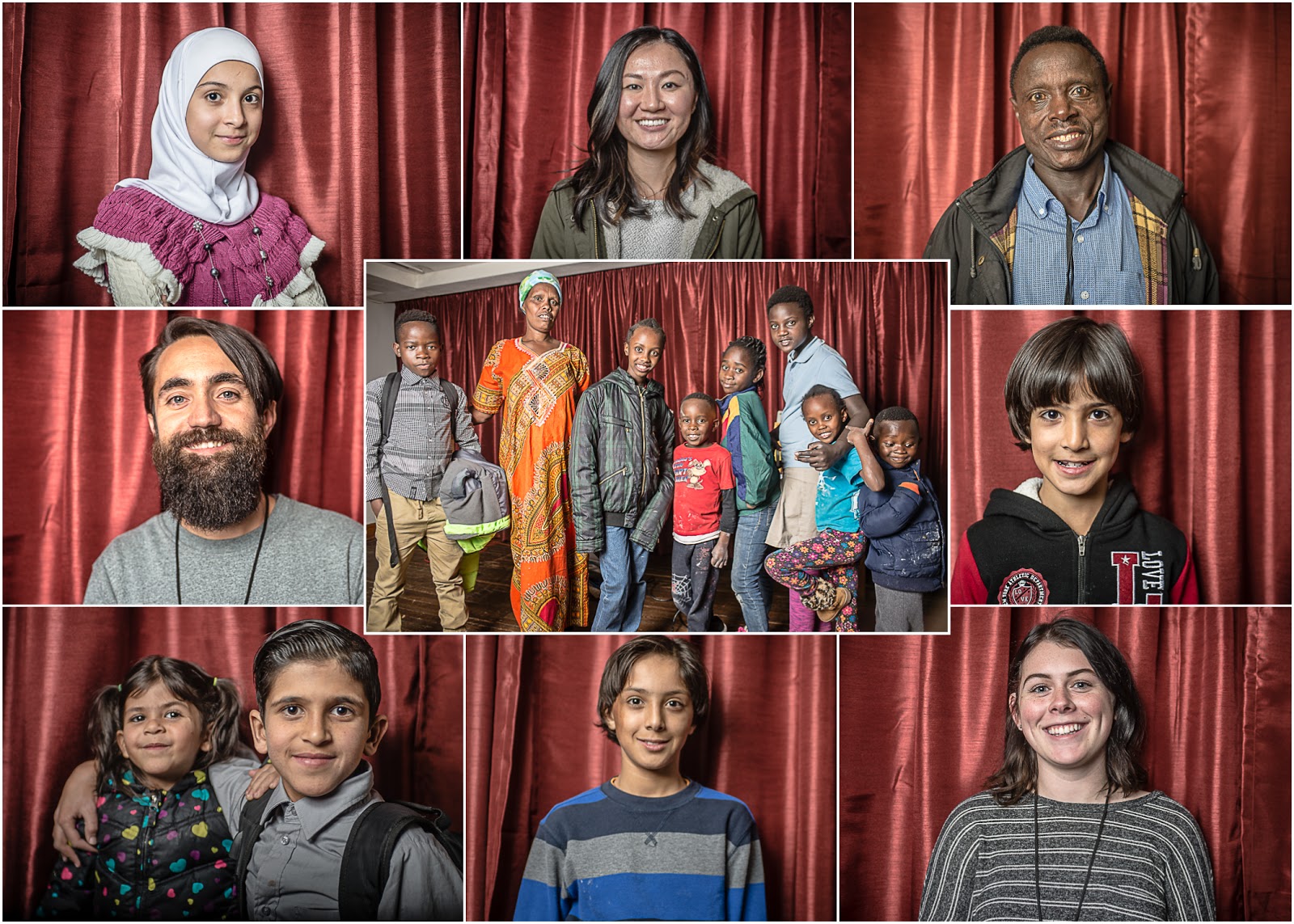During the school year at the University of New Mexico, the Refugee Well-Being Project holds “learning circles” at the University Heights United Methodist Church in Albuquerque. There students and refugee families meet twice a week to enjoy each other’s company and find ways to lend support to the resettled families.
The project has been helping refugees and their families since 2000. Its goal is to help local refugees with friendship and opportunities for a better life.
Jessica Goodkind, a University of New Mexico Associate Professor for Sociology, leads the project.
“Our emphasis is on promoting mutual learning between college students and refugee families, so that they can learn from each other,” Goodkind said. “And also engage together in advocacy — to mobilize resources to help refugees meet their unmet needs and goals.”
The families often need help and encouragement with such basics as finding long term housing, arranging transportation, finding jobs and schools, and other necessities of everyday life, Goodkind said.
“I think that one of the strengths that UNM students bring is really their experience as Americans… their enthusiasm. They’re young,” Goodkind said.
Olivia Martinez, a student advocate and senior Psychology and Anthropology major at UNM, is working with the program to help refugees in any way possible.
“The moment they get here they become members of our community,” Martinez said. “I mean there’s this universal human want to help other people and I think that’s one of the reasons that this is most important.”
Martinez tries to work with the families and be able to help them settle into their new homes.
According to the United Nations Refugee Agency, a refugee is someone who has fled their country because of war, persecution or violence. Persecution can be related to religion, race, social group or other circumstances.
The UNHCR reports 51 percent of refugees are under 18 years old. The UNHCR has also helped over 50 million refugees since 1951.
Martinez recalls the satisfaction of working with a recent refugee.

“I picked up a mother with three children…we actually started working together right away,” Martinez said. “She had a trash bag full of documents that needed to be sorted…and we became really really close friends basically by the end of the week.”
Helping another family can be tough at times, Martinez said, but explains that it helped her learn things about herself.
“In terms of myself, I just learned how to be a better listener, how to be more available, how to manage my time,” Martinez said. “You know, how to really know how to be there for someone in a genuine way.”
The Refugee Act of 1980 created The Federal Refugee Resettlement Program to provide for the effective resettlement of refugees and to assist them to achieve economic self-sufficiency as quickly as possible after arrival in the United States. This policy has helped many refugees in the past but recently, under the Trump administration, there will be fewer benefits and a tighter travel ban than in years past.
The third version of Trump’s travel ban has been approved by the Supreme Court, allowing for more restrictions for refugees.
The court’s orders ensure that the administration can fully enforce its new restrictions on travel from eight nations. Most citizens of Iran, Libya, Syria, Yemen, Somalia, Chad and North Korea will be restricted from entering the United States, along with some groups of people from Venezuela, according to the New York Times.
While these restrictions make it more difficult for refugees to come to America and provide fewer benefits, the local Refugee Well-Being Project plans to continue.
“There’s a lot of other motivations for helping disadvantaged groups, whether it be economic, political or anything like that,” Martinez said. “But at the end of the day,it’s just another person who you can really — you know — offer something to and in turn they can offer something equally as great to you.”
For more follow Kevin Maestas and Andrew Lucero Twitter!